A village is replacing young people with mannequins as population dwindles: ‘Outnumbered by puppets’
The village has a population of 60, with the last baby being born two decades ago
Your support helps us to tell the story
From reproductive rights to climate change to Big Tech, The Independent is on the ground when the story is developing. Whether it's investigating the financials of Elon Musk's pro-Trump PAC or producing our latest documentary, 'The A Word', which shines a light on the American women fighting for reproductive rights, we know how important it is to parse out the facts from the messaging.
At such a critical moment in US history, we need reporters on the ground. Your donation allows us to keep sending journalists to speak to both sides of the story.
The Independent is trusted by Americans across the entire political spectrum. And unlike many other quality news outlets, we choose not to lock Americans out of our reporting and analysis with paywalls. We believe quality journalism should be available to everyone, paid for by those who can afford it.
Your support makes all the difference.With fewer than 60 people living in the Japanese village ofIchinono, and a majority past retirement age, residents have installed handcrafted stuffed mannequins to recreate the once bustling community.
According to data from the internal affairs ministry, only one baby was born in Ichinono in the last two decades.
The youngest member of the village is two-year-old Kuranosuke, who came to the village in 2021 with his parents, Rie Kato, 33, and Toshiki Kato, 31. The couple chose to move to the rural area from Osaka because of the sense of community, which they found lacking in the city.
The Katos stand in stark reflection to the youth of Ichinono, who were encouraged by parents to move to the city to pursue better opportunities for education, jobs, and then marriage. The youth moved to the cities, but never returned.
“We were afraid they would become unmarriageable if they remained stuck in a remote place like this. Out they went, and they never came back, getting jobs elsewhere. We’re now paying the price,” 88-year-old widow Hisayo Yamazaki told AFP.
“We’re probably outnumbered by puppets,” she added.
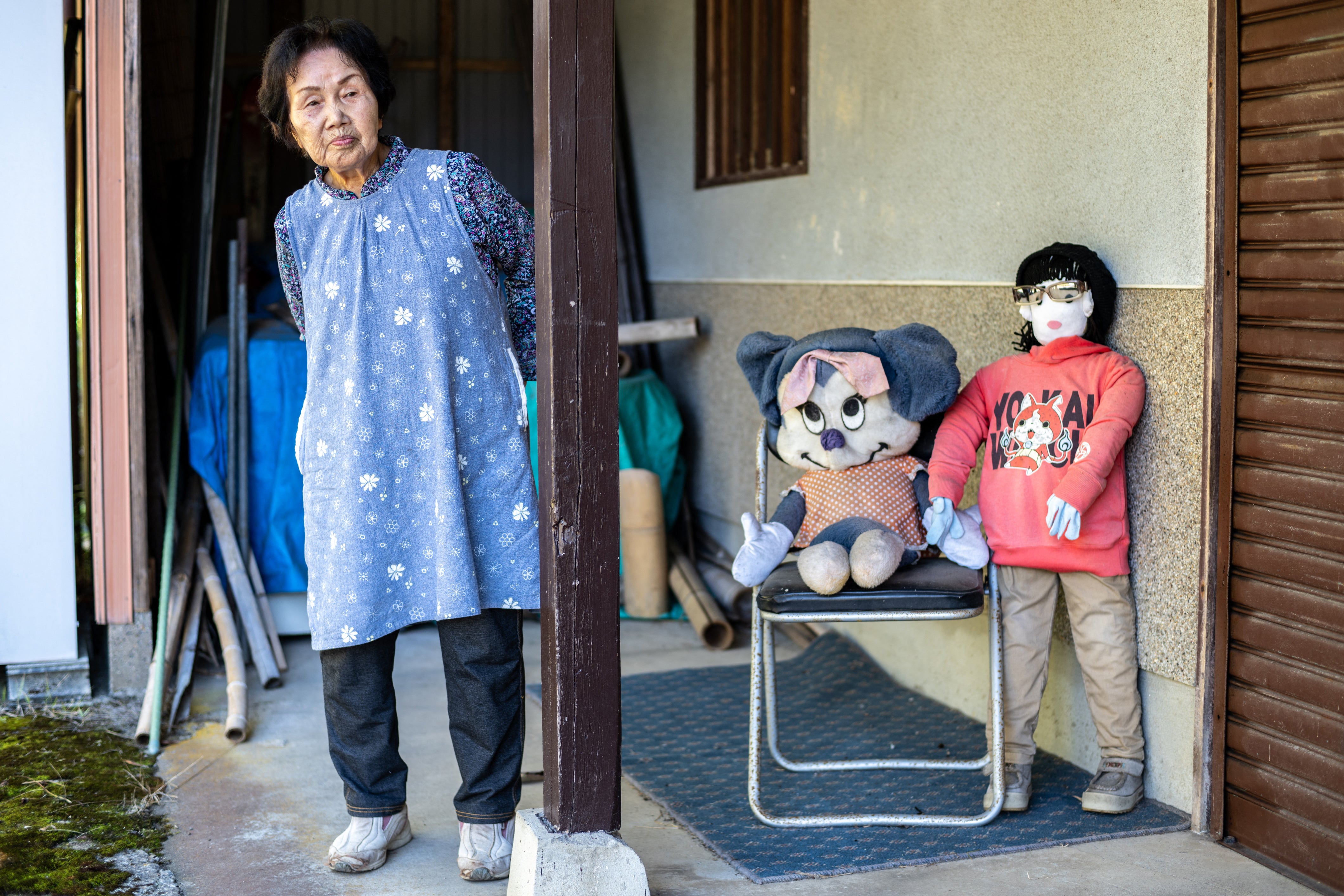
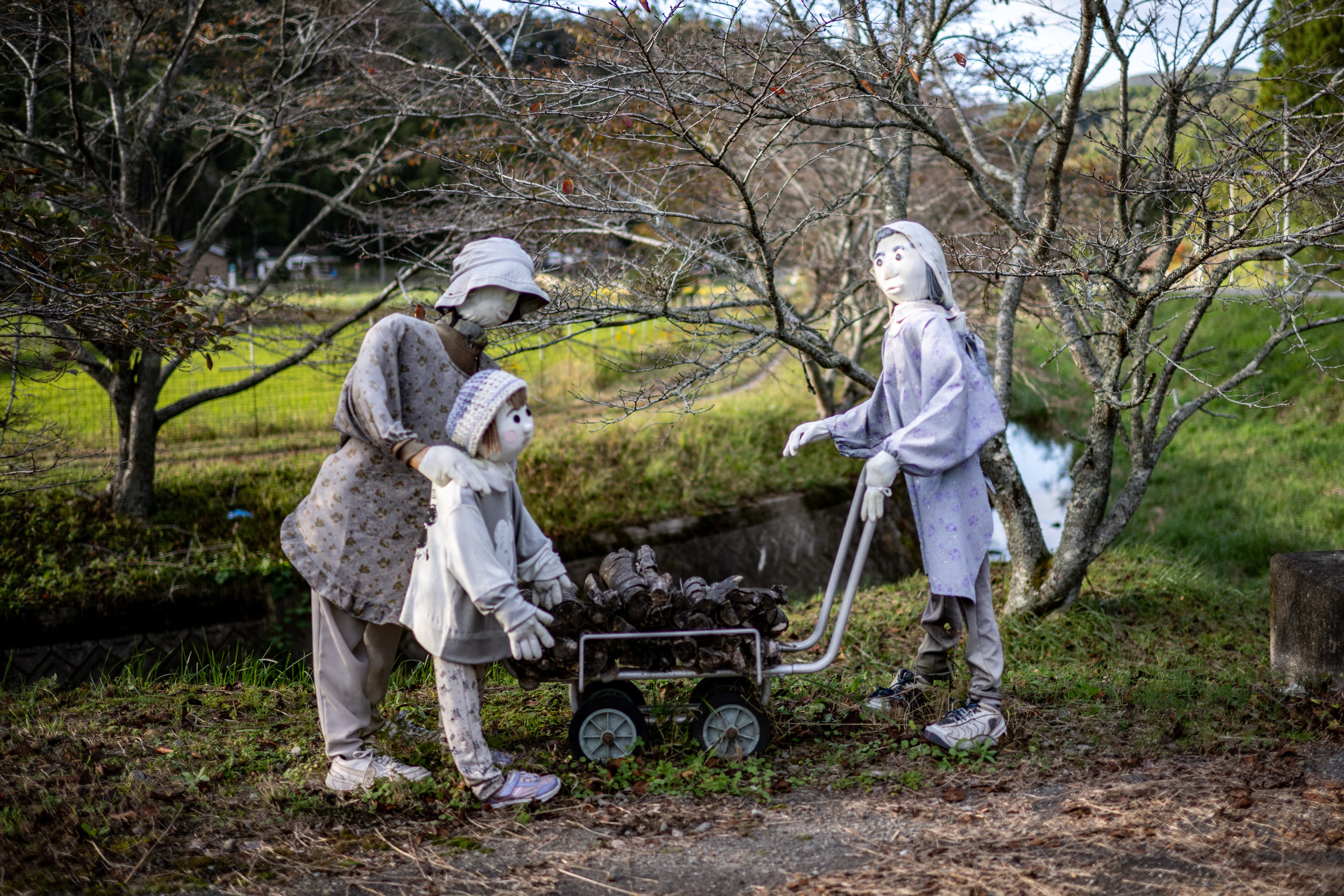
The puppets, all handcrafted by residents, are placed on swings or bikes, positioned as if they are pushing a cart of firewood, or prepare to work in the fields, an eerie replica of what families must have once done.
“If the village is left as it is now, the only thing that awaits us is extinction,” said 74-year-old Ichiro Sawayama, head of Ichinono’s governing body.
Ichinono is one of more than 20,000 communities in Japan where a majority of the residents are aged 65 and above, underscoring the formidable task ahead of the country as it sees a rapidly declining birth rate.

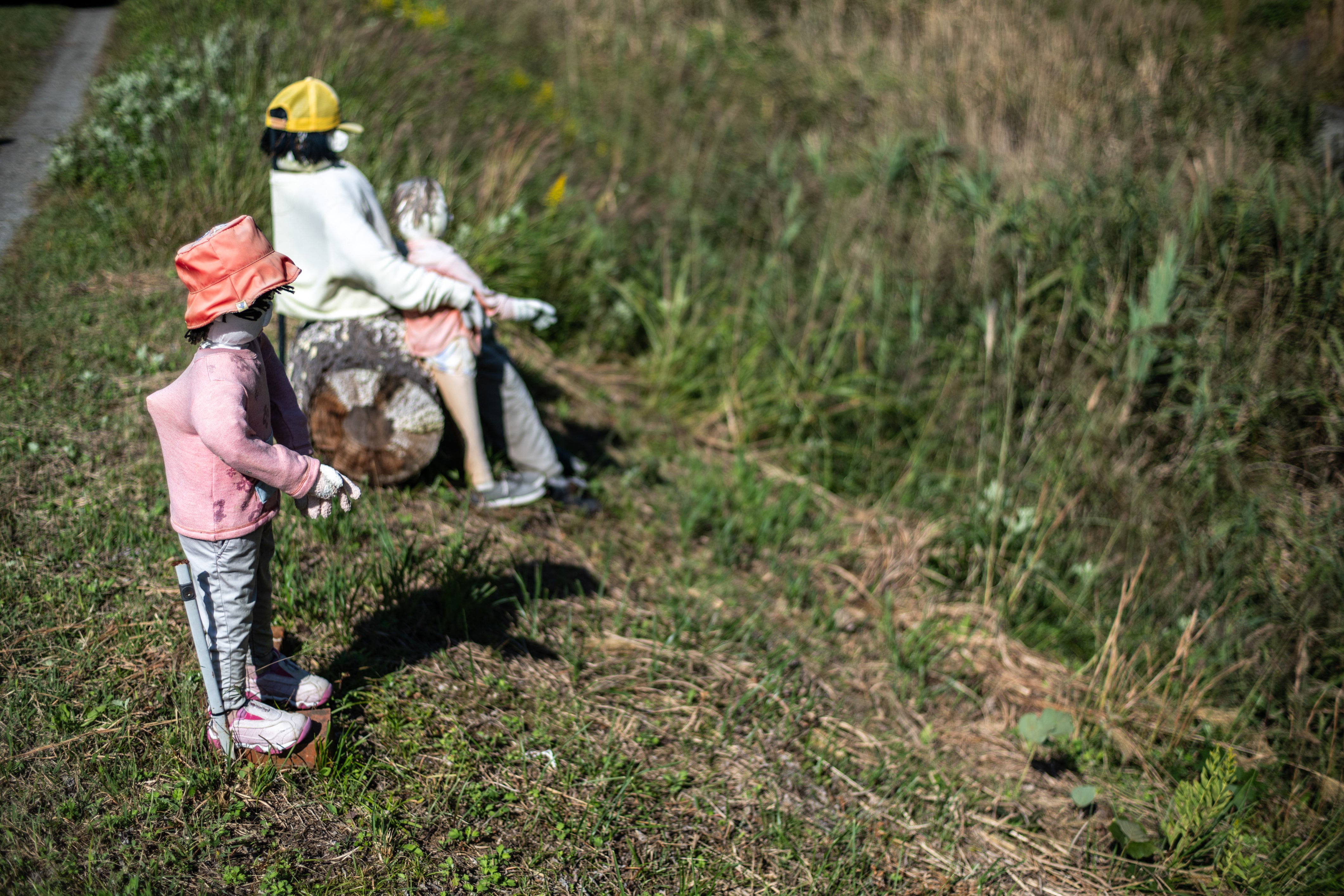
Preliminary government data released earlier this year showed that the number of babies born in Japan fell for an eighth straight year to a fresh record low in 2023. The number of births fell 5.1 per cent from a year earlier to 758,631, while the number of marriages slid 5.9 per cent to 489,281.
In 2023, Japan recorded more than twice as many deaths as new babies.
This is the first time in 90 years the number fell below 500,000, foreboding a further decline in the population as out-of-wedlock births are rare in Japan.
“The declining birthrate is in a critical situation,” chief cabinet secretary Yoshimasa Hayashi told reporters in February. “The next six years or so until 2030, when the number of young people will rapidly decline, will be the last chance to reverse the trend.”
The declining birth rate has left the island nation grappling with a diminishing workforce, which may have significant implications for funding pensions and healthcare services, especially as demands from an ageing population continue to rise.
Approximately 36.23 million individuals in Japan were aged 65 or older as of 15 September 2023, according to government data. This represents a record-breaking 29.1 per cent of the total population – marking a 0.1-point increase from the previous year.
The statistics were released by Japan’s internal affairs ministry on the eve of “Respect-for-the-Aged Day”, a public holiday celebrated across Japan on 18 September.
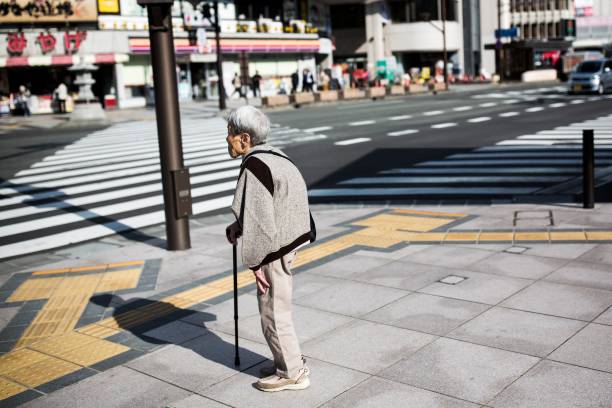
Japan’s population will likely decline by about 30 per cent to 87 million by 2070, with four out of every 10 people aged 65 or older, according to estimates by the National Institute of Population and Social Security Research.
The government has launched various initiatives to combat the declining birth rate, including financial incentives for couples to have children, expanded childcare facilities, and even a state-backed dating app in Tokyo that uses AI to match singles.
The decline in birth rates is a growing issue in East Asia, with neighbouring South Korea and China facing similar challenges, as they are faced with the daunting task of motivating young individuals to have more children, even as they grapple with the rising cost of living and mounting social discontent.
Last year, South Korea set a new record for the lowest fertility rate in the world, while China’s population shrank for the first time since the 1960s early this year.
As Japan’s government tries to figure out a way out of the crisis, the Katos in Ichinono don’t seem too worried about their son’s lack of playmates.
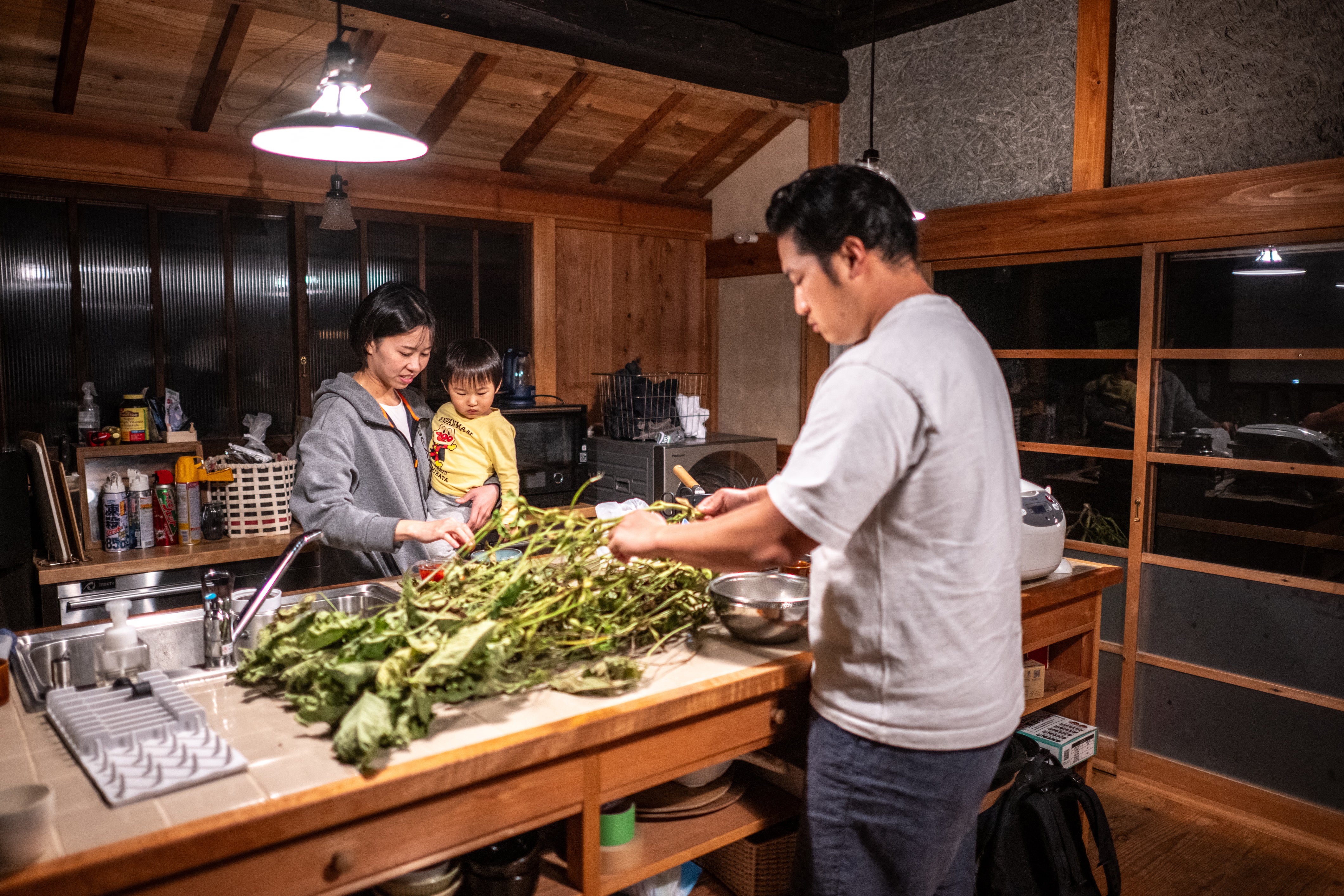
The village head calls the toddler “our pride”, while Yamazaki said he is “practically my great-grandchild – such a sweet thing”.
“Just by being born here, our son benefits from the love, support and hope of so many people — even though he has achieved absolutely nothing in life yet,” said his father Toshiki.

Join our commenting forum
Join thought-provoking conversations, follow other Independent readers and see their replies
Comments